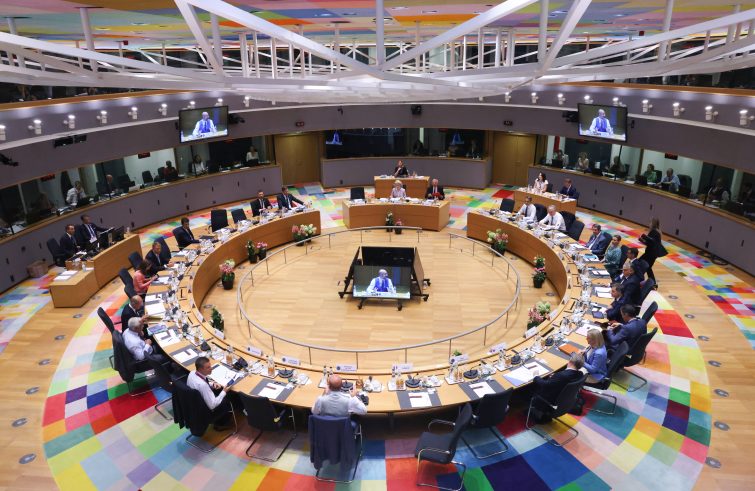
The stakes are high and it’s impossible not to see them. The summit of the EU-27 heads of state and government in Brussels on 21 and 22 March risks becoming a “Council of war”.
For more than two years, the Russian aggression against Ukraine has marked the history of a continent that had hitherto enjoyed peaceful coexistence. The result of the “elections” in Russia (quotation marks are not an option) strengthens the ominous autocrat Putin, who is now only interested in continuing the war. On the other side stands battered Ukraine, whose leader – Zelensky – has no choice but to call for military support in a desperate attempt to save his country from total destruction. The third actor is the European Union, which supports Kyiv with money and arms: once again, the strain of the conflict is causing defections (Hungary), backtracking and divisions (should we become co-belligerents? Send in ground troops? Enter the battlefield together with NATO?)
One thing is certain: a number of European leaders (Macron, Tusk…) and a handful of heads of EU institutions have embarked on the path of all-out conflict, with one watchword:
Support Ukraine militarily, defeat Russia.
This is an understandable position under international law, provided the path of negotiation, political and diplomatic solution is pursued. In this respect, a sin of omission would not be justifiable, because in the meantime weapons are killing and destroying.
As for the Spring European Council, the agenda sets the tone: “EU leaders will discuss continued support to Ukraine and its people in response to Russia’s military aggression. The EU will continue to provide political, financial, economic, humanitarian, military and diplomatic support for as long as it takes.” So far, the EU and its member states have provided more than €138 billion in aid to Ukraine. They have also supplied many, many weapons and ammunition. Now the missile option is on the table as well. Defence is the second item on the leaders’ agenda:
If Putin attacks, we must defend ourselves, the argument goes.
Thus the EU-27 leaders will discuss “Europe’s need to increase its defence readiness”, how to “strengthen the EU’s defence technological and industrial base” and a “European Defence Industry Programme”. The defence industry will have to be “competitive” in producing arms for its own armies (while continuing to trade in planes, tanks, bombs and guns with many countries around the world). Arsenals must be filled and then emptied.
Charles Michel, President of the European Council, used shocking words in his letter of invitation to the 27 EU leaders ahead of the summit: “This is also a time for a real paradigm shift in our security and defence. For decades, Europe has not invested enough in its security and defence. Now that we are facing the biggest security threat since the Second World War, it is high time we take radical and concrete steps to be defence-ready and put the EU’s economy on a “war footing”.
The winds of war – in Ukraine, in the Middle East and elsewhere on the planet – have a profound impact on the course of the Union and of humanity as a whole. A regional escalation of conflicts is the underlying fear. With unpredictable consequences.
The words spoken by Cardinal Matteo Zuppi on 18 March at the meeting of the Standing Committee of the Italian Bishops’ Conference ring out like a warning: “We must not resign ourselves to an unrestrained escalation of arms, let alone to war as a gateway to peace.”











